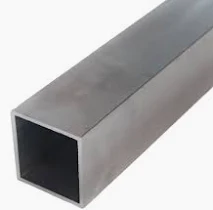
The Vital Role of Automotive Parts Distributors in the Supply Chain
Automotive parts distributors play a crucial role in the automotive supply chain, serving as the vital link between manufacturers and repair shops or consumers. These distributors are essential in ensuring that the myriad of components needed for vehicle maintenance and repair are readily available, thus keeping the automotive industry running smoothly.
One of the primary functions of automotive parts distributors is inventory management. With an extensive range of products to manage—from engine components to brake systems—distributors must maintain a balance between having enough stock to meet demand without over-committing resources to parts that may not sell. Advanced inventory systems are utilized to track parts, predict shortages, and manage stock levels efficiently. This not only ensures that repair shops can access the parts they need in a timely manner but also helps reduce the costs associated with excess inventory.
Furthermore, automotive parts distributors provide a range of services that enhance their value proposition. Beyond just selling parts, many distributors offer technical support, product training, and warranty processing. This support is critical for repair shops that may not have the resources to access particular technical knowledge or training related to new automotive technologies and components. By providing these services, distributors help ensure that shops can offer high-quality repairs and maintain customer satisfaction.

The advent of technology has significantly impacted the operations of automotive parts distributors. The rise of e-commerce means that distributors have had to adapt to new purchasing behaviors. Customers now expect quick access to parts and the convenience of online ordering. Many distributors have implemented robust online platforms, allowing customers to browse inventories, place orders, and track shipments in real time. This digital transformation has not only optimized the purchasing experience but also streamlined inventory management and distribution processes.
In addition, the increasing complexity of vehicles, particularly with the integration of advanced technologies such as electric and hybrid systems, has placed greater demands on automotive parts distributors. To meet these challenges, distributors must stay informed about industry trends and technological advancements. Strong relationships with manufacturers and continuous training are key components that enable distributors to provide the latest products and innovations to their customers.
Sustainability is another growing concern that automotive parts distributors must address. As consumers and regulators alike push for greener practices, distributors are beginning to adopt more sustainable logistics and sourcing strategies. This includes pursuing partnerships with manufacturers that prioritize environmentally friendly production processes and exploring options for recycling and remanufacturing parts. By embracing sustainability, distributors can not only reduce their environmental impact but also gain a competitive edge in a market that increasingly values eco-conscious practices.
In conclusion, automotive parts distributors are an integral part of the automotive industry, fulfilling essential functions that help maintain the seamless operation of the supply chain. Through effective inventory management, value-added services, technological advancements, and a commitment to sustainability, these distributors ensure that the automotive ecosystem can continue to innovate and meet the needs of consumers. As the industry evolves, the role of distributors will undoubtedly adapt, but their foundational importance will remain unchanged.